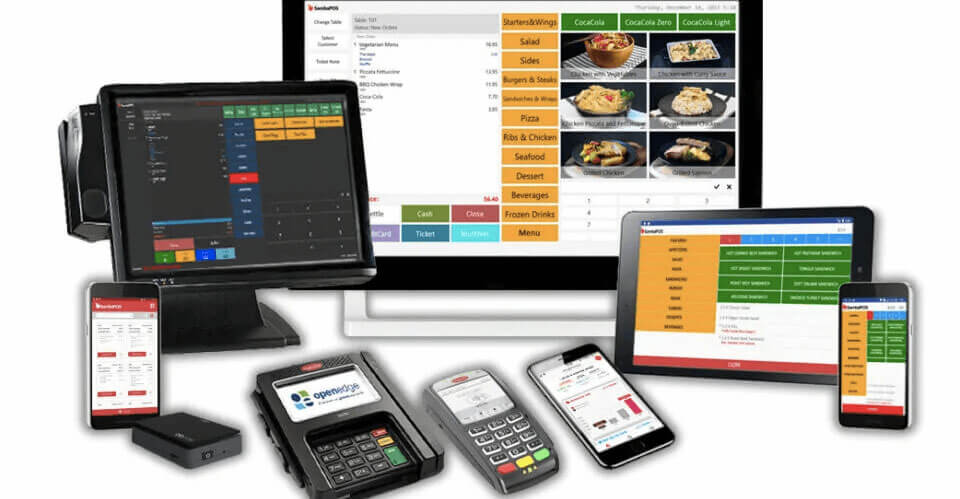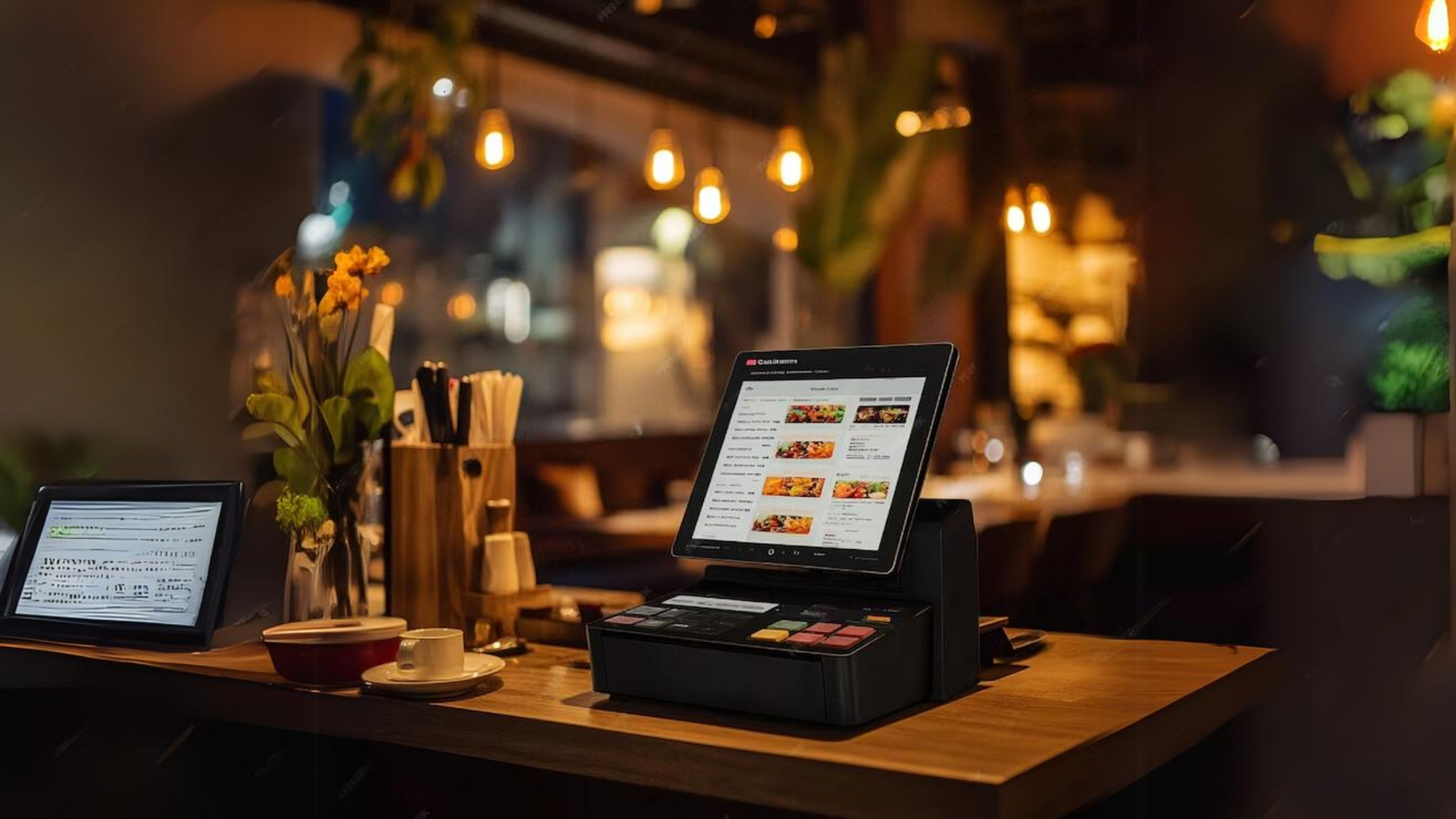Tailored Restaurant POS Software solutions that fit your restaurant’s operational demands
Understanding the Value of POS Software in Modern Retail Workflow
In today's retail landscape, the function of POS software has come to be significantly significant. These systems have transformed from fundamental sales register to multifaceted devices that boost different elements of operations. They not only streamline transactions but also provide insights that can form company methods. Understanding how these systems influence consumer experience and supply management is crucial for any retailer looking for to stay affordable. The effects of these innovations warrant additional exploration.
The Advancement of POS Software: From Deal Handling to Comprehensive Solutions

Enhancing Customer Experience Via Advanced POS Features

Enhancing Supply Monitoring With Integrated POS Systems
Integrated POS systems play an important role in simplifying stock management by automating procedures that generally required significant hand-operated initiative. These systems enable stores to track supply degrees in genuine time, getting rid of inconsistencies that usually occur from hands-on supply matters. With attributes such as barcode scanning and automated stock replenishment signals, services can preserve perfect stock degrees without overstocking or stockouts.Furthermore, incorporated POS systems facilitate accurate projecting by examining historic sales data, permitting sellers to make enlightened acquiring choices. This predictive capacity assists companies adapt to altering customer demands and seasonal fads much more effectively.Additionally, the centralization of inventory data across multiple sales channels improves exposure, allowing merchants to manage their supply much more efficiently. Inevitably, the integration of POS systems right into supply monitoring streamlines operations, decreases human error, and adds to raised profitability.
Real-Time Sales Tracking and Reporting for Informed Decision-Making

Exact stock management prepares for effective sales monitoring and reporting. Real-time sales tracking makes it possible for merchants to monitor sales efficiency as it occurs, giving prompt understandings right into client purchasing patterns and fads. This capability allows companies to respond quickly to variations popular, optimizing supply levels and reducing overstock or stockouts.Moreover, integrated POS systems promote the generation of comprehensive records, highlighting crucial metrics such as sales by category, period, and individual items. Such coverage capacities equip merchants to make data-driven decisions, identifying successful methods and locations requiring enhancement.
The Duty of POS Software in Consumer Connection Monitoring
POS software plays a necessary function in improving customer connection management by allowing merchants to implement personalized advertising and marketing techniques. By examining consumer information, services can customize promotions and interactions to fulfill private preferences. In addition, these systems promote the development of improved commitment programs that encourage repeat organization and reinforce client engagement.
Personalized Advertising And Marketing Methods
As stores increasingly seek to improve customer commitment and interaction, individualized marketing strategies have emerged as a crucial part of effective client connection management. POS software plays an essential duty in this procedure by gathering and assessing customer data, making it possible for stores to customize advertising efforts to specific preferences and purchasing behaviors. By leveraging understandings from purchase backgrounds, stores can produce targeted promos and personalized interactions that reverberate with consumers, fostering a much deeper connection. Additionally, the integration of POS software with customer partnership monitoring systems enables seamless tracking of client communications, ensuring that marketing strategies stay relevant and timely (Restaurant POS Software). This data-driven method not only enhances consumer fulfillment but likewise drives sales and urges repeat organization, solidifying the store's market placement
Improved Loyalty Programs
Sellers are progressively acknowledging the significance of commitment programs in promoting long-lasting client connections and enhancing total engagement. POS software plays an essential duty in the growth and management of these programs, permitting retailers to track consumer purchases, preferences, and habits efficiently. By leveraging information analytics, services can produce individualized benefits and incentives that resonate with individual clients, thus enhancing participation in commitment programs. Furthermore, POS systems Check Out Your URL allow seamless integration with mobile apps and digital systems, assisting in easy access to rewards and promotions. This not just improves consumer contentment but also drives repeat service. Inevitably, POS software encourages sellers to grow deeper links with their clients, changing occasional customers right into dedicated customers through targeted and significant engagement techniques.
Incorporating POS Systems With Ecommerce Operating Systems for Omnichannel Success
To accomplish real omnichannel success, smooth combination between point-of-sale (POS) systems and ecommerce platforms is necessary. This combination permits retailers to link their inventory monitoring, guaranteeing that product availability is accurately shown across both online and physical stores. Consumers gain from a cohesive shopping experience, where they can easily switch over between networks without encountering discrepancies.Furthermore, integrated systems promote real-time information sharing, making it possible for companies to examine customer actions and choices better. This data-driven method permits stores to tailor advertising techniques and enhance supply degrees, inevitably boosting customer satisfaction and driving sales.Additionally, the ability to process purchases throughout systems simplifies procedures, decreasing the risk of mistakes and boosting general effectiveness. As sellers increasingly take on omnichannel techniques, the assimilation of POS systems with e-commerce systems continues to be a vital aspect in accomplishing sustainable growth and keeping competitive advantage in the vibrant retail landscape.
Future Patterns in POS Technology and Their Influence On Retail Operations
As retail procedures advance, future patterns in POS technology are readied to improve the landscape considerably. The surge of cloud-based options, technologies in mobile POS systems, and the advantages of AI assimilation are among the crucial growths expected to improve efficiency and customer experience. These advancements promise to improve procedures and foster a much more vibrant retail setting.
Cloud-Based Solutions Surge
With the raising reliance on modern technology, cloud-based POS services are changing retail procedures by using improved versatility and scalability. These systems allow merchants to gain access to real-time information from anywhere, assisting in far better decision-making and customer support. By leveraging cloud facilities, services can minimize ahead of time costs related to hardware and software installments while making certain smooth updates and maintenance. Additionally, cloud-based services support multi-location management, allowing sellers to synchronize stock and sales across various electrical outlets effortlessly. This adaptability is essential in today's fast-paced market, where customer preferences shift rapidly. As more retailers adopt these solutions, they can anticipate enhanced operational performance and a much more responsive technique to market demands, ultimately boosting client fulfillment and loyalty.
Mobile POS Innovations
The evolution of retail technology remains to shape procedures, specifically with the surge of mobile POS technologies. These systems enable retailers to process purchases anywhere within the shop, boosting client involvement and simplifying checkout processes. Mobile POS solutions enhance supply monitoring by allowing instant accessibility to stock levels, assisting staff aid consumers much more effectively. Additionally, they facilitate tailored purchasing experiences with integrated customer information and commitment programs. As mobile phones come to be significantly sophisticated, sellers are adopting attributes such as contactless payments and electronic receipts, furthermore enhancing the buying journey. The change towards mobile POS not only enhances operational efficiency yet also lines up the original source with the growing consumer preference for convenience, guaranteeing that merchants stay competitive in a swiftly progressing market.
AI Integration Advantages
AI assimilation stands for a transformative jump in POS technology, providing sellers a myriad of advantages that improve functional performance and customer experience. By leveraging device understanding formulas, retailers can analyze buying patterns and optimize supply administration, minimizing waste and stockouts. Furthermore, AI-powered analytics give individualized marketing referrals, enabling targeted promotions that enhance consumer engagement and loyalty. Chatbots and virtual aides enhance client solution, enabling for quicker resolution of questions and enhancing the general shopping experience. Anticipating analytics can also anticipate need fads, making it why not look here possible for smarter staffing and source allotment. Ultimately, the combination of AI in POS systems encourages merchants to make data-driven choices, fostering a competitive edge in an ever-evolving retail landscape.
Often Asked Questions
What Are the Expenses Related To Executing POS Software?
The costs related to executing POS software can consist of software licensing fees, equipment expenditures, installment fees, training expenses, and continuous maintenance. Each element adds to the total financial investment required for a successful implementation.
How Can Small Retailers Benefit From POS Systems?
Tiny sellers can profit from POS systems through improved transaction performance, streamlined inventory management, and enhanced consumer understandings. These systems enable much better decision-making, inevitably leading to boosted sales and consumer contentment in open markets.
What Hardware Is Needed for a POS System?
A common POS system needs crucial hardware elements, including a touchscreen screen, money cabinet, barcode scanner, invoice printer, and settlement terminal. These aspects collaborate to assist in efficient deal handling and inventory management for merchants.

Can POS Software Be Customized for Specific Retail Requirements?
POS software can without a doubt be customized to meet particular retail requirements. Restaurant POS Software. This versatility enables businesses to customize attributes, user interfaces, and reporting devices, boosting functional effectiveness and providing a more tailored experience for both staff and customers
Just How Protected Is Consumer Data in POS Systems?
The protection of client information in POS systems differs extensively. Several systems execute file encryption, protected access controls, and routine updates, however vulnerabilities can still exist, requiring ongoing caution and positive procedures from sellers to secure delicate information.